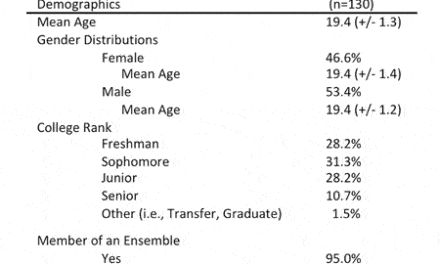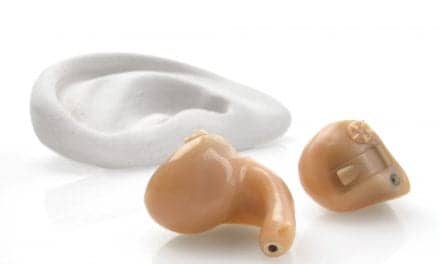The saying “You never have a second chance to make a good first impression” is never more applicable than during the initial patient contact opportunity—the telephone inquiry. During this important dialogue, you will begin to create a perception of the quality of your practice, including your clinical skills and your level of service, in the minds of potential patients. In fact, it’s at this point where the potential patient makes the decision to come in for a consultation—or not! In this first of a three-part series, we will discuss why it’s important to have exceptional telephone skills and how practice profitability is directly related to that initial telephone call.
| Nancy Kent is president of Mindshare Creative, Santa Ana, Calif, and a consultant for CareCredit. She is the former president of Primelife, a marketing agency that specialized in creating uniquely effective marketing and training programs for companies with products or services targeting consumers age 40 and older. |
When working with callers who may be frustrated with hearing loss, having exceptional telephone skills becomes even more critical. Unfortunately, in a busy practice, answering the phone in a timely manner may be challenging, let alone consistently applying learned skills that demonstrate patience and helpfulness to the caller.
Answering the telephone can be annoying and intrusive, especially when you have multiple other “priorities” that have to get done. The first step to acquiring exceptional telephone skills is to understand that, when the telephone is ringing, no matter who you are, what you are doing, or how urgent your current task is, answering the phone is the most important activity of that moment.
Why? Because how you answer the telephone, and the conversation you have with potential patients, will directly impact practice profitability.
Answer the Phone, It’s Opportunity Calling
If you do any type of marketing, from newspaper advertising to direct mail, or if you have patients who refer their friends and family to your practice, your primary objective is to get the telephone to ring. Unfortunately, if the person answering the telephone is rushed and short, all the effort, energy, and money you invest in these activities are, for the most part, wasted.
It’s Not Only What You Say … It’s How You Say It
Ever wonder why some callers book a consultation and others don’t? One reason could be the way they were treated during the initial phone call. Here is an example of a patient inquiry call. The office team is very busy, juggling patients and other priorities. The telephone is viewed as an interruption of their day and the person answering the phone would like to make the conversation as short as possible so they can return to other “more important” tasks.
The prospective patient who is calling is somewhat fearful and anxious about making the call. They have a spouse with significant hearing loss who resists getting professional help, primarily because “hearing aids are too expensive.” Their goal is to gain understanding of the process and to feel comfortable and cared for by the practice.
(Telephone rings)
Office Staff (OS): Dr Smith (in a rushed voice).
Caller: Yes … um … How much do your hearing aids cost?
OS: $500 to $3,500.
Caller: Oh, really (silence). Well, then … (silence).
OS: Do you want to set an appointment?
Caller: Um, no, I’ll have to think about it. Thanks. Good-bye.
In this situation, the person answering the phone definitely achieved their goal. The conversation was short and required no effort, so they could return to their “more important” tasks. What they may not realize is that they also achieved some other things:
- They lost a potential patient, and all their future business and referrals;
- They sent the perception out into the community that the practice is unfriendly and unhelpful;
- They lost the opportunity to improve a person’s life;
- They lost the potential revenue needed to sustain a healthy practice.
The caller’s goal was not achieved; in fact, the opposite occurred:
- They are now more fearful and hesitant;
- They did not gain any understanding of the process and did not feel embraced by the practice;
- They will probably never call back.
Now, we will go through this situation again, but this time, with the practice focused on the goal of obtaining a third-party consultation:
(Telephone rings)
Office Staff: Dr Jones’ office. This is Janet. How can I help you?
Caller: Yes … um … How much do your hearing aids cost?
Janet: May I ask your name?
Caller: Yes, my name is Betty.
Janet: Betty, are you the one experiencing hearing loss or are you calling for a friend or loved one?
Betty: It’s for my husband. He doesn’t want to come in because he thinks hearing aids are too expensive.
Janet: You know, a lot of our patients thought that before they came in to see Dr Jones. He is a great doctor and his goal is to make sure each and every patient has just the right hearing aid for their specific needs and he will do everything he can to make that happen. Hearing instruments can range in cost anywhere from $500 to $3,500, but, Betty, the only way to give you a truly accurate cost is by having your husband come in for a consultation. Once the doctor has determined his specific needs and which hearing instruments will work best for him, we can discuss cost and payment options. We also offer payment options and a program that makes it easier to fit hearing health care into your monthly budget. I can tell you all about this popular program when you come in. Betty, I just had a change in my schedule and I have an opening tomorrow at 10 am. Can you and your husband come in at that time?
Betty: That’s great. Yes, we can make it.
Janet: Terrific. Let me get some additional information …
In this example, the caller’s goal was achieved, and the practice’s goal of a third-party appointment was achieved. It is a win-win conversation.
What Do Callers Hear When They Call Your Practice?
Before you can implement a program to improve your team’s skills, you need to truly understand how they currently answer the telephone. There are a couple of ways to do a “self-evaluation.”
- Enlist a friend to “secret shop” your practice. It’s important that your team be unaware that they are being evaluated. Even if the results are not what you want to hear, you must get a clear understanding of what is truly happening. Have friends call the practice several times over a 2- to 3-week period, taking on different “personas” including one that would represent a “difficult” caller. Then have them report on their experiences, specifically focusing on:
- How were they greeted?
- What was the tone of the person answering the telephone?
- Were they placed on hold and, if so, for how long?
- What questions were they asked?
- Did your team member portray a caring and helpful attitude?
- Record incoming calls for team training. There are inexpensive recording systems available to help you do this. Just remember, you must let the caller know that the “call may be recorded for training or quality purposes.”
- Conduct a peer review or self-evaluation. Have your team call several “high end” retailers or businesses in your community and have them critique the call. Then, make a list of the “best practices” they identified and have them perform an evaluation of the other members of the team and themselves based on those criteria.
Mastering exceptional telephone skills requires commitment, thought, effort, and training. In the next article in this three-part series, we will discuss how to answer the phone and how to use active listening skills to encourage patients to schedule an appointment.
Correspondence can be addressed to [email protected] or Nancy Kent at .
Pop Quiz
When the telephone rings during a busy day, it is:
- an annoyance
- an interruption
- a necessary evil
- a great opportunity
- your paycheck calling
If you view the telephone as an annoyance, interruption, or necessary evil, or you are tired, have low energy, or are distracted with another issue, the manner in which you answer it and the conversation you have with the caller will reflect your perspective or mind-set. Because the caller’s perception of the practice develops in the first 30 seconds of the phone conversation, if they are treated in a hurried, insensitive manner, the likelihood that the caller will choose that office to assist them with their hearing health will dramatically diminish. On the other hand, if you see the telephone as a great opportunity to help patients and positively impact another person’s day and truly understand that in reality it is your paycheck calling, the dialogue and tone will be entirely different. You will be more inclined to be patient and helpful, actively listen to the caller, and answer questions thoroughly and with respect. And the patient will be more inclined to set a consultation appointment.



